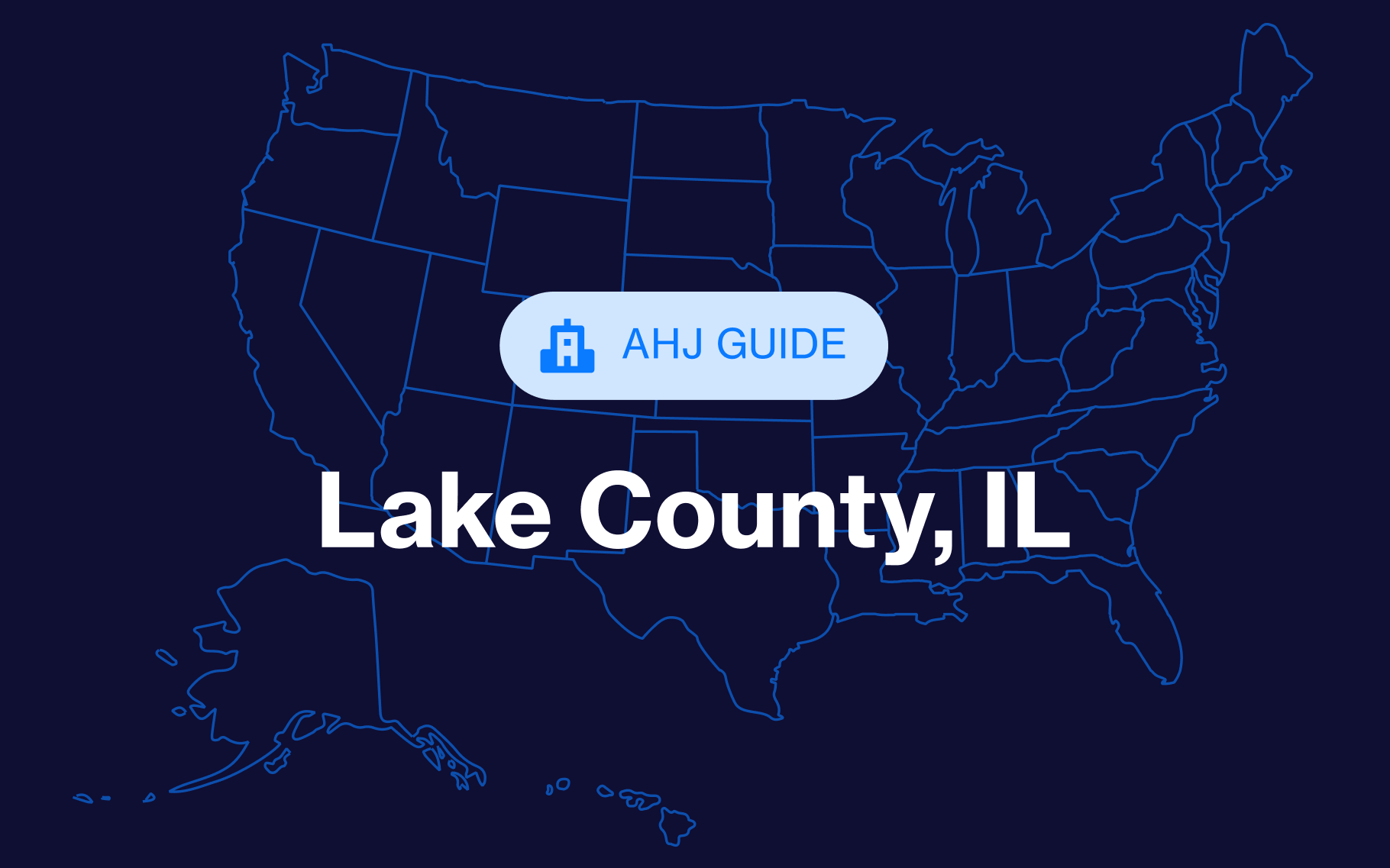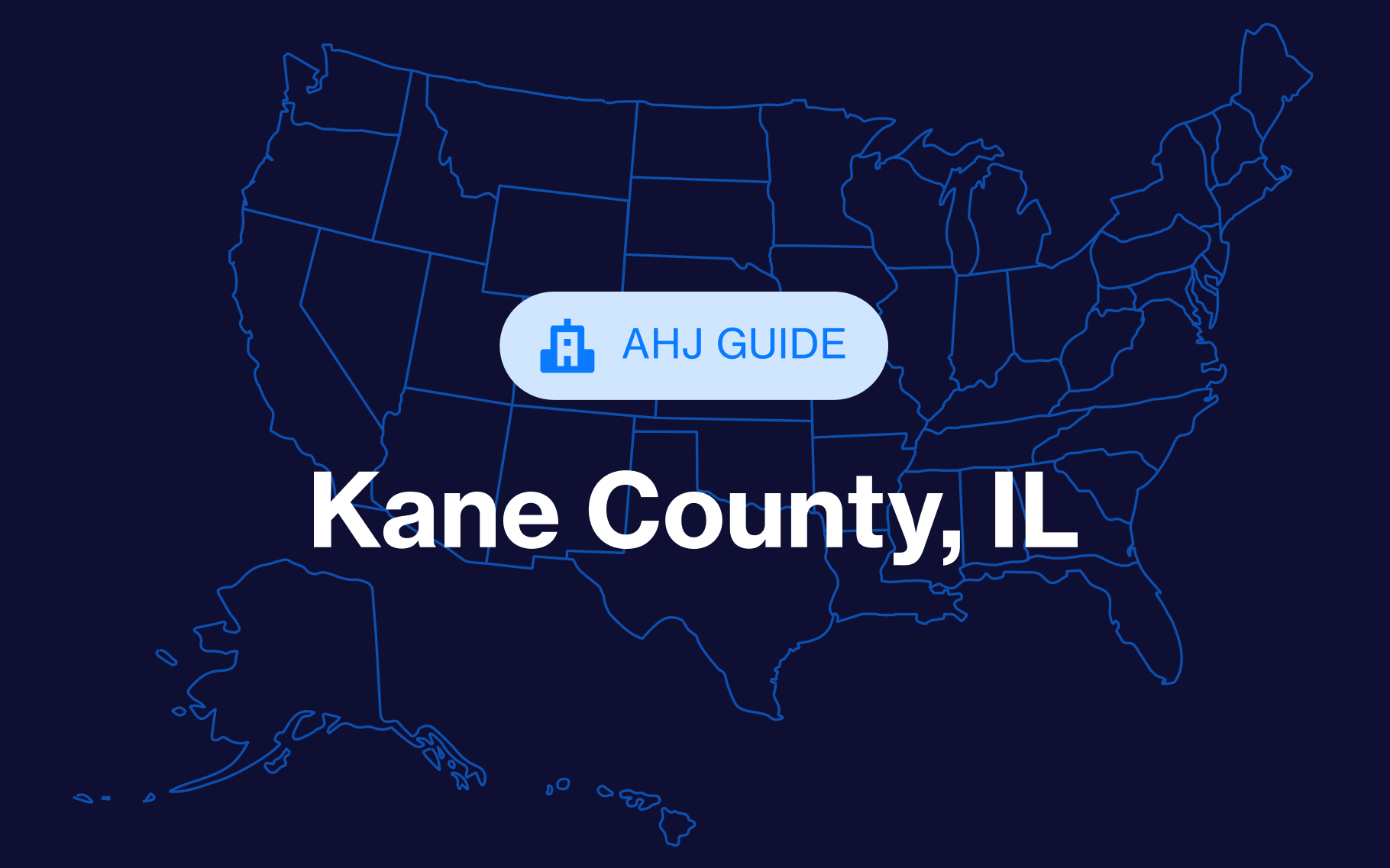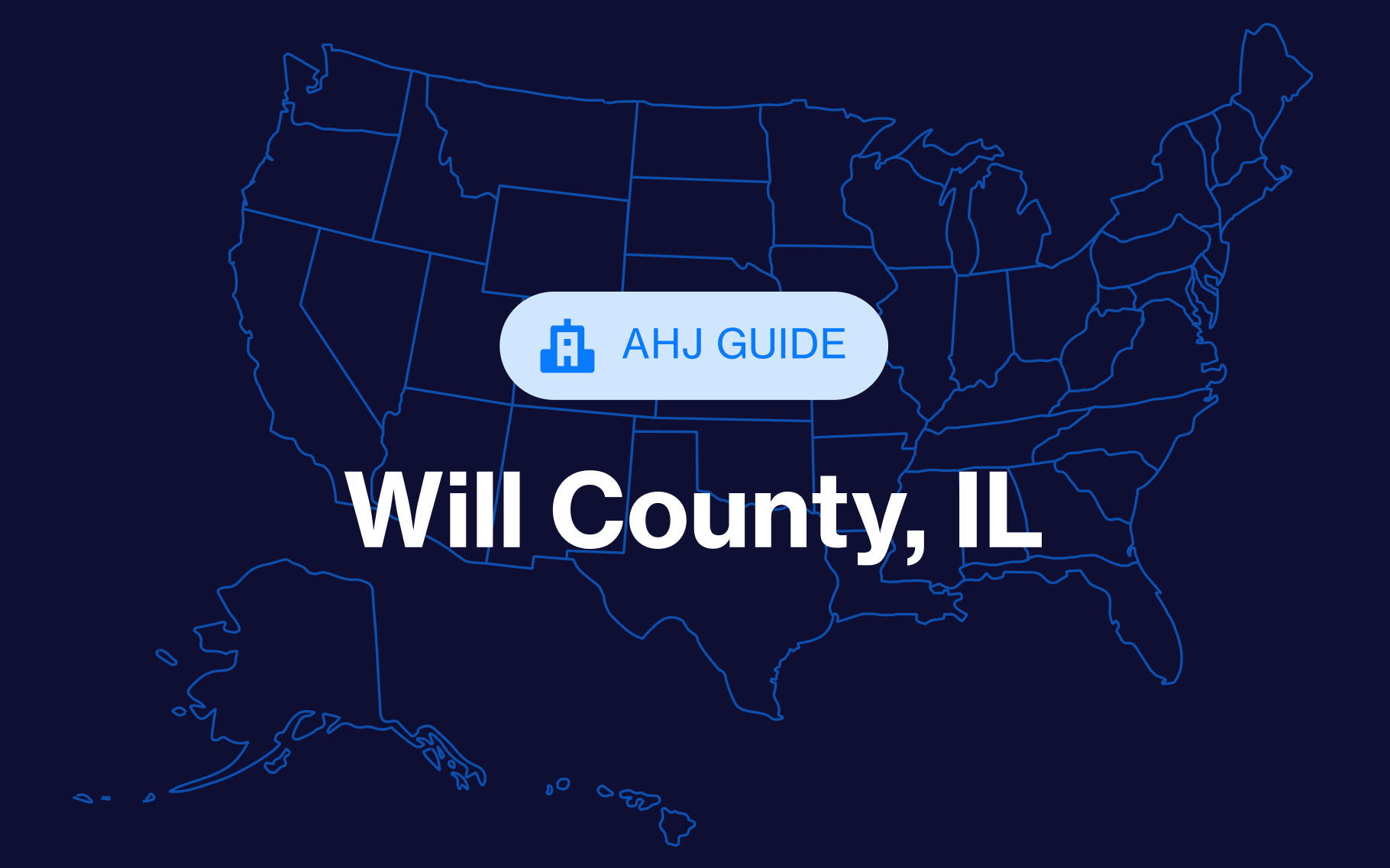Whether you’re building a single-family home in Naperville, remodeling a commercial space in Springfield, or upgrading a multifamily unit in Rockford, most construction projects in Illinois require a building permit.
Below, we’re walking through everything contractors and developers need to know about building permits in Illinois, including costs, requirements, and unique local considerations.
What requires a building permit in Illinois?
While requirements vary by municipality, permits are generally required for:
- New construction (residential, commercial, or multifamily)
- Additions, garages, decks, porches, or sunrooms
- Structural changes, wall removals, or layout modifications
- Roofing, siding, window/door replacements (in many cities)
- Basement finishing or attic conversions
- Electrical, HVAC, or plumbing installations
- Demolitions or major repairs
Work that typically doesn't require a permit
- Painting, flooring, cabinetry, and other cosmetic updates
- Fence installations under height thresholds (usually 6 feet)
- Detached sheds under a certain size (e.g., 120 sq ft or less)
- Driveway repairs (though some towns require permits for expansions)
Always verify requirements with the local permitting office — some Illinois municipalities are stricter than others about what triggers a permit.
Who issues building permits in Illinois?
Building permits in Illinois are issued by local municipalities or counties, not by the state. Each city, town, or village maintains its own permitting office, processes, and codes — sometimes even multiple departments for different project types (building, electrical, plumbing, mechanical).
- Incorporated cities like Aurora or Peoria typically issue permits through their building departments or development services divisions.
- Unincorporated areas (especially in counties like DuPage, Kane, or Lake) may rely on county zoning or planning departments.
Illinois does not have a centralized permitting authority, so it’s important to contact your local jurisdiction early.
Illinois building permit requirements
Permit applications across Illinois usually include the following:
- A completed permit application form
Site plan and/or plat of survey - Architectural or structural drawings (sealed by a licensed professional if required)
- Project valuation or construction cost estimate
- Contractor license and insurance documentation (if work is not DIY)
- Energy code compliance forms (e.g., REScheck or COMcheck)
- Approvals from zoning, public works, or health departments, depending on project type
Some jurisdictions may also require:
- Stormwater management plans for large or impervious surface projects
- Soil erosion control documentation
- Mechanical, electrical, or plumbing permits submitted separately
Illinois building permit costs
Permit fees vary by jurisdiction and are often calculated based on construction value, square footage, or project type.
Example fee structures:
- Naperville: $75 base fee + $8 per $1,000 of project value
- Champaign: Residential permits ~0.5% of estimated cost + plan review fee
- Lake County (unincorporated): Flat fees by permit type (e.g., $250–$350 for additions)
- Rockford: Commercial permit = $50 base + $5–$10 per $1,000 of construction cost
Additional fees:
- Plan review ($50–$200 depending on complexity)
- Re-inspection ($50+)
- Permit renewal or extension ($30–$100)
- Impact fees or school/park district fees (especially in new developments)
Permitting fees should be factored into your budget early. Be aware that starting work before a permit is issued can double fees or trigger penalties.
Unique considerations when permitting in Illinois
1. Statewide energy code enforcement
Illinois enforces the 2021 International Energy Conservation Code (IECC) for both residential and commercial buildings. All local jurisdictions must comply, and many require documentation (e.g., REScheck) with permit submittals.
2. Soil, floodplain, and stormwater requirements
In counties like DuPage and Lake, permits involving grading or site disturbance often require stormwater permits, especially near wetlands or floodplains. This may add review time and documentation needs.
3. Zoning complexity
Municipal zoning ordinances can vary significantly across Illinois. Setbacks, lot coverage, building height, and use classifications must be confirmed before applying for a permit — especially in historic downtown districts or agricultural zones.
4. Seasonal construction
In northern Illinois, local departments may restrict some types of work during winter months (e.g., concrete pours or foundation inspections), affecting project timelines.
How to get a building permit in Illinois
Here’s a typical step-by-step process for obtaining a permit outside of Chicago:
Step 1: Confirm scope and prepare your application
Contact your local city, town, or county to confirm what permits you need and which department handles them (building, zoning, engineering, etc.).
In your permit submission, be sure to include:
- Completed application form
- Site plan or plat of survey
- Architectural plans (stamped if required)
- Contractor information and insurance
- Energy code documentation
- Engineering reports or stormwater plans (if applicable)
Step 2: Submit application and pay initial fees
Many jurisdictions now offer online permit portals, though some still require in-person or emailed submissions. Initial payments may be required for plan review to begin.
Step 3: Plan review and corrections
Plans are reviewed by building inspectors and zoning officials for code compliance. Respond promptly to correction requests to avoid delays.
Step 4: Receive permit and schedule inspections
Once approved, pay any remaining fees and receive your building permit. Post it visibly at the job site before work begins.
Coordinate with your local building department to schedule inspections at key phases (e.g., footing, framing, mechanical rough-ins, final).








